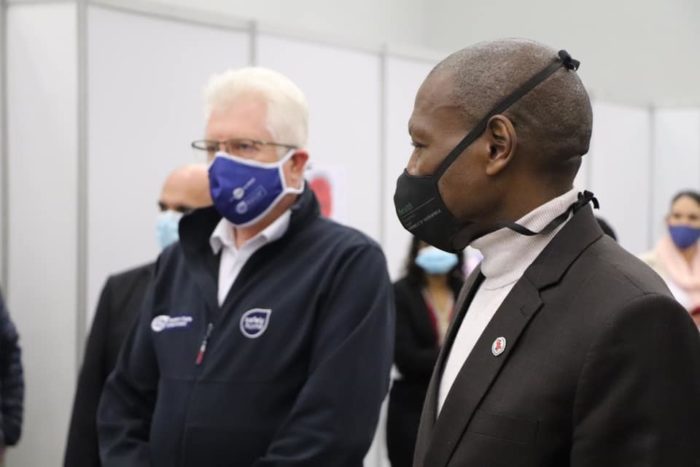The Western Cape has 10 135 active cases of COVID-19, with a total of 22 087 confirmed cases and 11 431 recoveries as of June 1.
The province recorded 33 more coronavirus-related deaths, bringing the the total number of deaths from the virus to 521.
The number of tests conducted thus far is 160 448 and 958 people have been admitted to hospital, of which 181 are in ICU or high care.
The breakdown of cases is as follows:



Unallocated: 2028 (653 recovered)


National Health Minister Zweli Mkhize visited the Western Cape today to see how the province has prepared for the peak of the COVID-19 curve.
During his visit, Mkhize saw the CTICC hospital which will provide over 850 beds for COVID-19 positive patients. He also visited the now complete 60 bed Khayelitsha temporary hospital, built by Medicins Sans Frontiers at the City of Cape Town’s Thusong Centre. This will operate in conjunction with the Department of Health in the province, giving care to COVID-19 positive patients in this area.
Minister Mkhize visited the quarantine and isolation facility which was sponsored by Old Mutual, as well as the Brackengate site where work is currently underway on a 300 bed temporary hospital.
The Western Cape government briefed Minister Mkhize on the hotspot plan and discussed some of the risks in the system. These include the backlog in testing as a result of the NHLS backlogs, and shortages of testing kits and reagents required for testing.
“We are working closely with the National Department of Health ensuring that all of the nuts and bolts of our response are in place and that our approaches are aligned. These sites are part of our ongoing preparations to ensure that at the peak, which is expected at the end of June, beginning of July in the Western Cape, we are able to offer care to those that require it,” said Premier Alan Winde in a statement.
[WATCH] Minister of Health, @DrZweliMkhize, visited the WC to observe the Department of Health’s facilities that are being prepared for the peak of the coronavirus pandemic. @WCHealthMEC @WCGovTPW @HealthZA @WestCapeHealth @MadikizelaBongz @WesternCapeGov pic.twitter.com/sOd8cWimRj
— Premier Alan Winde (@alanwinde) June 1, 2020
In a statement, Winde also urges residents to consume alcohol responsibly as sales reopen during Level 3. He reminds locals that alcohol consumption could result in increased pressure on hospital facilities.
“From early this morning we have seen long queues forming around liquor stores across the country as alcohol sales have been re-opened. During the lockdown period, when alcohol sales were banned, we saw a significant dip in the number of people visiting emergency and trauma units. We will be keeping a close eye on the situation as alcohol is responsible for many harms in our communities, including violence, abuse, and road accidents,” said Winde.
“All of these have the potential to result in increased pressure on our hospital facilities. Western Cape residents must adhere to all of the rules of sale, and, if we find that alcohol is not used responsibly, and there is an associated increase in trauma cases at our hospitals, we will explore the options available to reduce this impact.”
Image: Facebook/ Alan Winde

